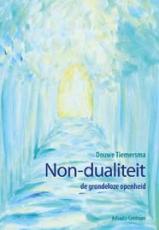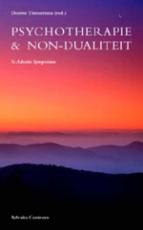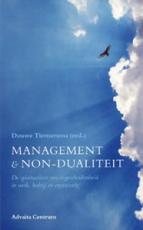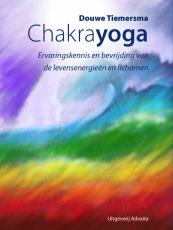Advaita Post #12-16 - The more open you are for the Openness...
Volume 12 No 16 (October 17, 2011)
--- The more open you are for the Openness, the faster all your forms will dissolve ---
My view is infinite,
the clear space
my expansion.
The seen embraced
external,
internal,
all duality disappears
in its origin.
*
He healed and cleansed the soul from all these obstacles like a
good demon. He rekindled the divine spark in her and
kept it burning, and he directed the divine mind's eye towards the
knowable. For Plato, the preservation of this sight is more important
than ten thousand bodily eyes. For only this,
with keen observation, after first strengthening
with the right tools and developed to their utmost,
can penetrate the truth concerning all creation.
To this end Pythagoras purified thought, and this was
the nature and purpose of his teaching.
Jamblichus (3rd century), The Life of Pythagoras and his followers
*
That which cannot be perceived by the eye,
but by which the eye is perceived—
know That alone as Brahman
and not that which people worship here.
Kena Upanishad 1.7
The passages above are from: Chakra Yoga - experiential knowledge and liberation of the life energies and bodies, the beginning of Chapter 3 The Third Eye Chakra (Ajna).
See also a new review in Yoga Newsletter: Yoga Teachers Association Netherlands (not translated)
Text
The concreteness of the being-experience, "You are That"
From a talk with Douwe Tiemersma in Gouda, September 21, 2011
One particular point that continues to recur is the concreteness of the self-experience as absolute openness. Jnana Yoga, the yoga of knowledge in the advaita approach, is about this direct being-experience.
Is that what is meant by insight?
That is insight into yourself, but it often begins as knowledge on the mental level. First you hear the important truths and start thinking them over, so that you can put them in order, so that you gradually come to know what it's all about. Traditionally, that means studying the important texts of the Vedas, especially those of the Upanishads, also with the structure of thought that it is present there. Then you know from the Upanishads that it's about the recognition of yourself as Brahman, the identity of Atman and Brahman, and how that relationship exists within the physical world. That is an initial starting point for achieving clarity. First you'll have to acquire knowledge of the important things and then you'll have to think about them on a mental level until you have the truth clearly in mind.
Then of course it's about making this knowledge, that you've picked up and gotten to know, your own. That happens through a kind of meditation. You make things your own first by having them as an experience or as mental knowledge, but then later by letting that distance between yourself and that experience/knowledge disappear. It's a sort of object meditation through which the object distance disappears and the two poles come together. You as subject and that which you know or experience in an objective sense, melt together. That is the realization. Then it's a direct being-insight, a truth that you realize as reality, as your own being-reality. Making it your own will need to happen in a very concrete manner if the knowledge is to become reality. It's not just a 'you realize', a recognition, an awakening. That awakening will need to be so concrete that it means a total change of your whole experienced situation. That is the realization, that is the actualization: that it becomes reality. There are many people who have slowly proceeded to the stage of knowing and recognizing. But then see what else is necessary: the total coinciding with that which you have come to know. On the mental level it still remains abstract. Namely, it is something that is not connected to your own concrete situation. It is still a theoretical knowledge. The content of this knowledge will need to merge with your own existence, your own way of being.
If that coinciding is to happen in a very concrete way, then you will first have to have a very clear sense of both poles.
You are That. For most people in India that "That" is something which is well known. That is Brahman, first in the form of a deity, but eventually even that which precedes it.
When there is a certain sense of it, a certain notion of it, then it is said: you are That. Of course, you can easily repeat it as a formulation. The actualization is something else. This can only occur very practically until that truth coincides with yourself.
Let's first talk about Brahman, 'That', the infinite, groundless and unfathomable, that which is experienced on the object side as the absolute. Scientists also have to deal with it, to the extent that they persevere with their thinking. They study the object-world in time. When you go back in time far enough you eventually come to, for example, the Big-bang. The next question for the mind is: what was there before the big-bang? Nothing can be said about it. But that's just it: we have a feeling for what precedes it. Our thinking never stops, but the content of that thinking appears to evaporate beyond its borders. The point is that we do have a sense of it.
The clearer that sense is, the better the starting point for a spiritual development. Sooner or later, that sense of infinity, let's call it Brahman, arises for anyone who enters a deeper spiritual path. Then again I hear: I'm standing before a boundary, I experience that beyond it there is 'nothing ', there is fear of totally letting myself go into that great nothingness. When you proceed further along a spiritual path, you see that this absolute openness is manifesting. That Great is going to manifest itself.
So you have received an interpretation of it in all the different religious traditions. It is said: we cannot know it, but we do have a revelation. Then it is a sacred text. That's how it works: you see that throughout history people have had a sense of it. In many places that sense appeared to go further than all the different divine projections.
In ancient India it was called Nirguna Brahman, Brahman without attributes; you can say nothing about it. In Judaism, Christianity and Islam there is the prohibition: make no graven image of God.
So the recognition of the Absolute on the object side, is something that occurs everywhere. To the extent that you continue to proceed along a spiritual path, that greater will continue to manifest itself, then it is acting. To the extent that you feel that it is functioning there is also the direct recognition of a transition in yourself towards a greater passivity through which your activity is taken over by that greater.
It is said that something must be done, while at the same time it is said that nothing needs to be done because you are that already. That's difficult. It can be very tricky for the mind to hear that something is still needed.
Yes. But you see the transition. And that transition will need to come. So the activity of the I-think and the I-think- that-there-is-still-something-needed is going to disappear at a particular point.
But if you know what you are, relaxation arises by itself. That relaxation is a byproduct, it's not something you seek, it just happens.
Excellent. We just spoke about your sense of the infinite in which there is an infinite relaxation.
When you have the sense of the boundless you have two sides: the subject and the object side...
Yes, so it is something that fits into an experience that at first is dualistic. Then you can immediately say: subject and object are always already one. But as long as there is still a separation somewhere in your own life you will have to take a look at it. Secondly: the more you are open for the openness, the better it is. That's what I'm talking about now. The clearer your feeling sense is of that total openness, the better. Therefore I point it out and ask: is that also something that you recognize? Yes? Excellent, because then it will be able to show itself sooner or later. And the more clearly it is allowed to manifest the stronger and more forcefully will it act to dissolve whatever residues may still remain stuck somewhere.
Because you have your foundation there, you see what you are not ...
It all completely dissolves in that great. We once had a weekend in the Hoorneboeg [a woodland retreat near Gouda] about "the dissolving action of the Absolute". That is the action: it dissolves, it dissolves. The absolute space functions almost like a vacuum. When you really have a vacuum in space everything dissolves within it. We make use of it in chemistry. With a very low air pressure a solid dissolves into a liquid phase for a very short period and then into a gas. That liquid phase is hardly noticeable, so the material actually transforms directly from a solid into a gaseous state. It dissolves very quickly, because it is a vacuum. That's called sublimation. It has very old historical backgrounds in alchemy, but the experience is just: with openness for the Open all your forms dissolve.
Er is geen tweeheid
als je ontspannen bent
in zelf-bewustzijn
is dat duidelijk.
Boeken
Douwe schreef en redigeerde gedurende zijn leven boeken. Via onze uitgeverij zijn deze nog verkrijgbaar.



